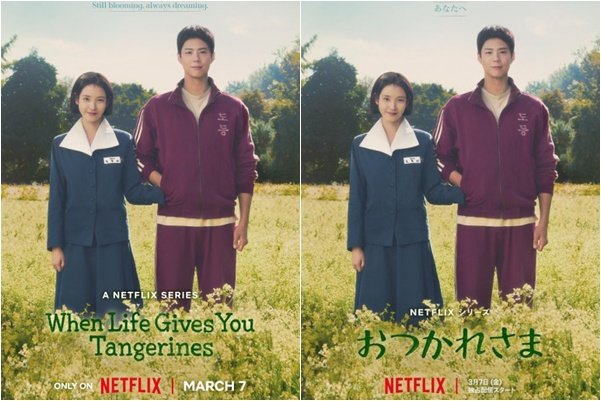‘I was completely fooled’ Witty country titles trending topics

‘Cheated on You’ tells the story of the rebellious Ae-soon (IU) and the iron-sounding Gwan-sik (Park Bo-gum) born in Jeju in the 1950s through the four seasons of each year, and has been available in 120 countries around the world since the 7th through the global OTT Netflix. It has become a sensation, with 6 million viewers (total viewing time of 48.1 million hours), ranking 2nd among non-English TV shows.
According to Netflix on the 20th, the Jeju dialect ‘You‘ve been so foolishly tricked’, meaning ‘Thank you for your hard work’, has been reinterpreted to fit the sentiments of each culture based on the drama’s message of ‘Let‘s bravely overcome a difficult and arduous life’.
This phrase seems to have been inspired by the famous quote ‘When Life Gives You Lemons, Make Lemonade’ by American philosopher Albert Hubbard. In particular, the fact that ‘lemon’, which is used in the United States, was cleverly changed to ‘tangerine’, a Jeju Island specialty, is eye-catching.
In line with this, IU drew attention at the production conference by saying, “The English title of the drama is funny. It contains the meaning, ‘Even if life throws bitter tangerines, let‘s make tangerine juice with them and drink warm tangerine tea’.’.
It is the same in non-English speaking countries. The overall atmosphere is in line with the meaning, ‘Let’s overcome the series of trials in life bravely’.
In Taiwan, it was released with the title ‘Meeting You After Hardship’ (苦盡柑來遇見你), utilizing the four-character idiom ‘gojingamlae’, which means ‘After everything bitter comes something sweet’. Here too, the ‘감(甘) in 고진감래 was changed to the similarly shaped ‘감(柑) tangerine, bringing to mind the setting, Jeju Island.
Thailand uses ‘Let‘s smile even on days when tangerines aren’t sweet’ (ยิ้มไว้ในวันที่ส้มไม่หวาน), meaning ‘Let‘s maintain a positive attitude even in difficult situations’, and France uses ‘Life bears fruit’ (La vie portera ses fruits), meaning ‘All efforts and trials in life eventually lead to meaningful results’.
An official from the Netflix globalization team said that they focused on “bringing cultural nuances to life” in line with the producer’s intention, adding, “We made it so that overseas viewers can recognize the feel or genre of the work just by looking at the title, while ‘The original title “I tried to find a balance so as not to lose the ‘color’,” he added.
Reporter Lee Jeong-yeon annjoy@donga.com
This article is automatically translated using Google AI. If you notice any inaccuracies, please let us know at allkstar@donga.com.

